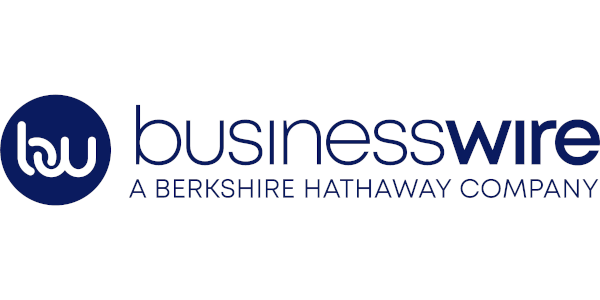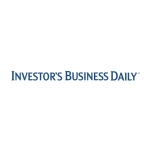Yet with 59% of Americans identifying as job sensitive, index remains in negative territory
LOS ANGELES–(BUSINESS WIRE)–The IBD/TIPP Economic Optimism Index, a leading national poll on consumer confidence, rose by 4.0% in May after falling 11.3% in April and 9.9% in March. It remains in negative territory for the second consecutive month however, with a reading of 49.7. For the IBD/TIPP indexes, a reading below 50.0 indicates pessimism.
The IBD/TIPP Economic Optimism Index has established a strong track record of foreshadowing the confidence indicators issued later each month by the University of Michigan and The Conference Board. IBD/TIPP surveyed 1,225 adults from April 26 – April 29. Due to COVID-19, the poll was conducted online using TechnoMetrica’s network of online panels to provide the sample.
In addition to the Economic Optimism Index, IBD/TIPP surveyed respondents on key political issues for the separate Presidential Leadership Index and National Outlook Index as well as the Financial Related Stress Index.
This month, the Presidential Leadership Index dipped 0.8%, moving from 49.7 in April to 49.3 in May. A month after each of the three components of this index increased by double-digit percentages, President Trump’s Favorability rating declined by 2.7% and his Job Approval rating slipped by 0.2%. The Leadership component remained the same.
The National Outlook Index reflected a slight increase. Its May reading of 47.8 is up 1.5% from last month’s 47.1. Notably, the Morals & Ethics component continued to climb, rising another 5.5% after last month’s 30.8% increase.
May’s Financial Related Stress Index declined 8.3% after last month’s significant 36.1% increase. Its current reading of 64.0 remains above 50.0, which equals more financial stress while a reading below 50.0 on this index would indicate consumers feel less stress.
“After a very tough April, the rise of several key components on May’s indexes reflect that consumers are hanging onto small seeds of hope that the economy might bounce back as states reopen,” said Ed Carson, IBD’s news editor. “At the same time, there is clearly anxiety and consumers are hurting. Fifty-nine percent of respondents identify as job sensitive, and 50% report having trouble paying at least one of their bills. Concern over the state of retirement accounts is also high at 60%.”
The flagship IBD/TIPP Economic Optimism Index has three key components. This month, two of the three increased.
- The Six-Month Economic Outlook, a measure of how consumers feel about the economy’s prospects in the next six months, rose by 11.3% to 42.3 after two consecutive months of double-digit declines. The component fell by 20.5% in April and 16.1% in March.
- The Personal Financial Outlook, a measure of how Americans feel about their own finances in the next six months, rose by 5.4% to 52.9 after its 18% drop in April.
- Confidence in Federal Economic Policies, a proprietary IBD/TIPP measure of views on how government economic policies are working, declined by 2.4% to 53.8 in May. This cuts into last month’s 4.8% increase — the lone bright spot on the April Economic Optimism index.
“Americans continue to feel the economic fallout from the coronavirus outbreak, particularly in the form of rapid job losses. More than 30 million Americans have filed jobless claims since the onset of the crisis. According to our latest survey, more than two in five (43 percent) Americans have lost their jobs or work hours due to the coronavirus outbreak. Digging deeper, 14 percent report losing their jobs, while 29 percent have seen their work hours reduced as a result of the crisis. Also, 42 percent of U.S. households have at least one member looking for a full-time job. Despite the precarious situation, consumer confidence rebounded slightly this month, and is close to reentering optimistic territory, suggesting that Americans are hopeful that the economy will soon bounce back,” said Raghavan Mayur, president of TechnoMetrica, who directed the poll.
The Breakdown
This month, nine of 21 demographic groups — such as age, income, race and party preference — that IBD/TIPP tracks were at or above 50, in positive territory, on the Economic Optimism Index. That is up from six in April, but down from 15 in March, 19 in February and 20 in January. Seventeen groups rose this month after 17 fell in April and all 21 groups retreated in March. Sixteen rose in February and 11 in January.
On the Six-Month Economic Outlook component, just three of 21 groups that IBD/TIPP tracks scored in optimistic territory, versus one in April, seven in March, 14 in February and 12 in January. Optimism over the economy’s six-month outlook fell among all three political groups and among both investors and non-investors alike. Optimism among Independents, a key swing vote in upcoming elections, rebounded to 37.4 in May after tumbling to 29.9 in April. That’s still down from 42.7 in March and 57.5 in February.
On the Personal Financial component, 13 groups IBD/TIPP tracked were in optimistic territory, up from in April but down from all 21 in March, February, January, December, November and October. Fifteen groups improved after all 21 groups fell in April, 17 in March, 12 in February and four in January.
On the Federal Policies component, 17 of the 21 demographic groups tracked were above 50, vs. 19 in April when Congress and President Trump agreed on a $2 trillion rescue package and the Federal Reserve embarked on massive monetary stimulus. This month, just 6 groups rose, 17 in April and just one in March.
ABOUT THE IBD©/TIPP POLL
The IBD/TIPP Economic Optimism Index is the earliest take on consumer confidence each month and predicts with good reliability monthly changes in sentiment in well-known polls by The Conference Board and the University of Michigan. The IBD/TIPP Economic Optimism Index is based on a survey of 900-plus adults chosen at random nationwide. The national poll is generally conducted in the first week of the month by live interviewers and both cell phone and landlines.
For more information, go to www.tipponline.com. To license the IBD/TIPP Poll, please contact: IBDlicensing@investors.com.
About IBD
Investor’s Business Daily (IBD) is a leading financial news and research organization recognized for proprietary stock screens, comparative performance ratings and a record of identifying stock leaders as they emerge. The company takes a data-first approach to investing, educating investors about how to invest successfully using tested methods and sound research. IBD has honed its approach over the last 50 years to help investors make smarter decisions. Its stock lists have outperformed the S&P, and its presidential poll, the most accurate over the past four election cycles, was one of only two national polls to accurately predict the outcome of the 2016 Presidential Election. IBD offers a number of interactive stock research tools and provides information for investors of every level. To learn more about all that IBD has available, please visit www.investors.com.
© 2020 Investor’s Business Daily, Inc. All rights reserved. Investor’s Business Daily, IBD, CAN SLIM and their corresponding logos are registered trademarks of Investor’s Business Daily, Inc.
Contacts
Marisa Lam
GMK Communications for IBD
marisa@gmkcommunications.com
650.544.3350






